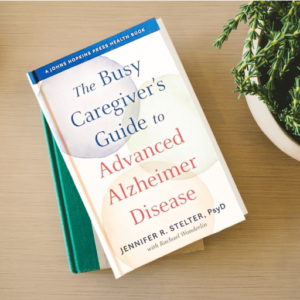In Their World at Halloween Time
Halloween can be a fun time of year for children and teenagers to dress up as their favorite characters, attend parties, go trick or treating, and eat lots of candy. Heck, even adults may partake as well. However, for those with progressing dementia, Halloween time can be quite scary, increasing unproductive and negative behavioral expressions. But why?
Within the Dementia Connection Model©, a cognitive-behavioral approach to dementia care, the first pillar is the theory of Retrogenesis, which explains that as the disease is progressing, the person’s skills are reverting back towards infancy. Skills include taking care of their independent activities of daily living (IADLs) and ADLs, their emotional intelligence, memories, communication abilities, and more. Dr. Barry Resiberg found in his research of this theory that those living with dementia who are in their later parts of the moderate phase and in late stage are developmentally the ages of 7 years old to 4 weeks old.
Now put yourself in the shoes of a 5-year old or 3-year old. They get scared when seeing evil costumes, darkness, scary sounds, etc. Therefore, people who have later-stage dementia may also experience this fear. When they experience fear, they then show this in their behaviors, causing unproductive or negative behaviors in order to protect themselves.
Simply put, when a person with dementia is stimulated using their senses, that information is processed either directly or indirectly in the limbic system of their brain that houses the amygdala (feelings) and hippocampus (memories). Therefore, when negative experiences occur, this will cause them to feel negative feelings, memories, and unproductive and/or negative behavioral expressions, like aggression or wandering. However, positive stimuli will promote positive feelings and memories then positive behavioral expressions. And when the caregiver is the one providing these positive experiences, the person with dementia will either connect or re-connect with them because they like how they feel with that person.
So, some positive stimuli that can be used around Halloween time are the following:
- Olfactory – diffuse a cinnamon essential oil that can help uplift the mood and provide that nice fall scent.
- Gustatory – have on hand a handful of their favorite candies and give it to them in moderation (taking into account their current recommended diet).
- Visual – reminisce with pictures of Halloween events or play relaxing scenes of leaves falling from the trees or taking a walk in the Autumn woods. Decorate with fun, not scary decorations, and avoid costumes, or at least the scary ones.
- Auditory – play their favorite holiday music they enjoy rather than scary sounds, loud bangs, and screams often on Halloween recordings.
- Tactile – have them partake in making fun decorations or engage them in a Halloween game where they are also using their cognitive skills.
In conclusion, the holidays are around the corner, and it’s best to plan ahead when you care for those living with dementia. They deserve to enjoy the holidays just like you and I. Therefore, when using the Dementia Connection Model, you can put yourself in their shoes to understand their experience, and then provide positive stimuli that would promote positive feelings, memories, and behavioral expressions.
At the Dementia Connection Institute, we are always striving to educate caregivers and professionals to fill their toolbox with lots of tools to be prepared when caring for those living with dementia. Become trained in the Dementia Connection Model through the Dementia Connection Specialist Certification Program or help us spread the love of dementia education by becoming a Trainer. Learn more at https://www.DementiaConnectionInstitute.org/Certification-Programs.




